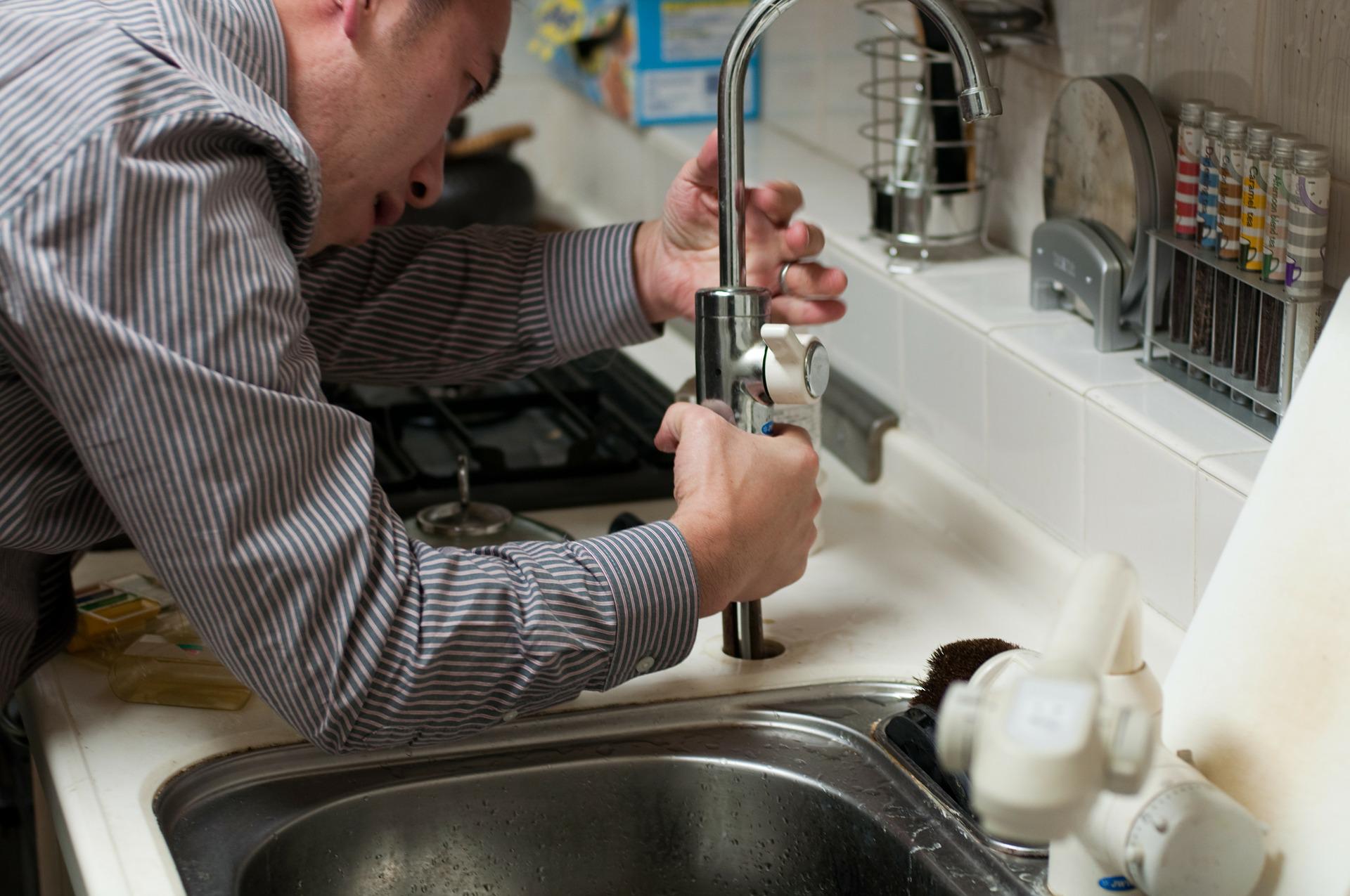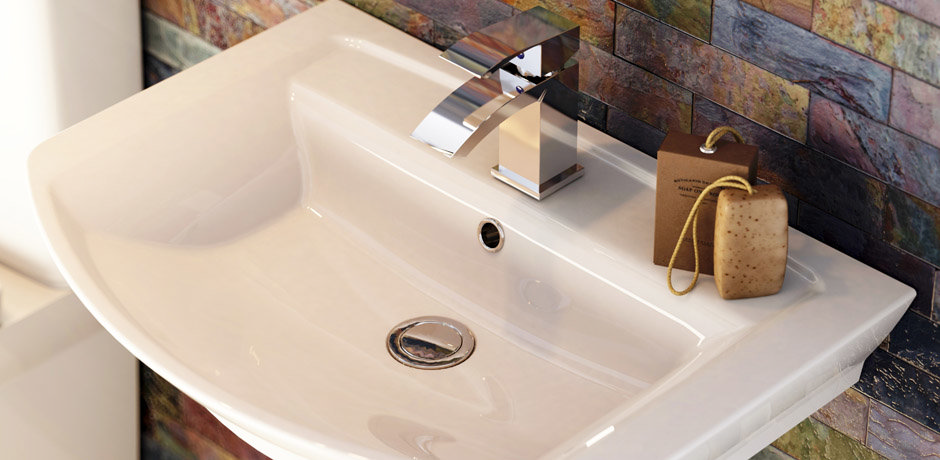Best Strategies For Repairing A Slow-Draining Sink
Best Strategies For Repairing A Slow-Draining Sink
Blog Article
The writer is making a number of great pointers on 7 Ways To Fix A Slow-Draining Sink Before You Call A Plumber as a whole in this article following next.

Introduction
We have actually all existed: You're brushing your teeth or washing your hands, and you notice the water pooling in the sink. Instead of swiftly swirling down the tubes, it lingers, turning your once-refreshing early morning routine into a mini overload scene. A slow-draining sink isn't just aggravating; it's usually an indicator of bigger plumbing concerns lurking beneath the surface area. The good news is that most slow-draining sinks can be taken care of with a little knowledge, a few standard devices, and some persistence. All set to tackle this task head-on? Let's roll up our sleeves and dive right in.
Comprehending the Causes of a Slow-Draining Sink
Prior to you begin poking around in your pipes, it aids to understand what may be triggering the slowdown. Comprehending the root cause makes it easier to select the right fix.
Devices and Materials You'll Require
The right devices make all the distinction. Thankfully, you will not require a totally stocked plumbing professional's van to get the job done.
Step-by-Step Guide to Taking Care Of a Slow-Draining Sink
Currently, allow's enter the nitty-gritty. This detailed procedure will guide you through simple techniques to recover your sink's water drainage.
Action 1: Get Rid Of and Clean the Stopper
Usually, the stopper (that small plug you push down to obstruct water) is the very first perpetrator. Remove it carefully and clean off any kind of hair or crud caught around its base. Rinse it completely prior to placing it back in place.
Action 2: Utilize a Plunger to Remove Debris
Got that plunger prepared? Setting it over the drain and provide it a few company pumps. The concept is to produce suction that can loosen any type of blockage. If you see bits of particles floating up, you get on the appropriate track.
Action 3: Try a Drain Serpent or Cord Wall Mount
If the plunger does not suffice, it's time to draw out the drainpipe serpent. Carefully feed it right into the drainpipe and spin as you go. You might feel some resistance-- that's likely the blockage. Keep twisting and pulling up until you get rid of the blockage. If you do not have a drainpipe snake, a corrected cable hanger can work in a pinch.
Step 4: Apply a DIY Drain Cleanser
A natural cleaner made from cooking soft drink and vinegar can break down residual gunk. Put half a mug of cooking soft drink right into the drainpipe, complied with by half a mug of vinegar. Let it fizz for about 15 minutes, after that flush with hot water. This chemical reaction often does wonders for minor blockages.
Step 5: Reconstruct and Check the Sink
Placed everything back together and run the tap. Does the water currently swirl down the tubes at a commendable rate? If yes, provide yourself a pat on the back. If not, do not despair-- there are still a few even more dress up your sleeve.
Crucial Tools for Do It Yourself Repairs
A bettor is your go-to starting factor. A small, sink-sized plunger develops suction that can dislodge minor obstructions. For more relentless obstructions, a drainpipe snake (in some cases called a plumbing professional's auger) functions wonders. A pair of handwear covers, a flashlight, and maybe a set of safety safety glasses are likewise handy.
Advised Cleaning Solutions
Moderate recipe soap and hot water can assist break down oily build-up. A blend of baking soft drink and vinegar is a time-tested natural home remedy, and chemical cleansers offer a more eco-friendly technique. Maintain chemical drainpipe cleansers as a last resort, as they can be severe on your pipelines.
Usual Perpetrators Behind Slow Drain
So, what's clogging points up? Normally, it's a blend of everyday particles-- believe hair, soap scum, tooth paste residue, and remaining food bits. Gradually, these little bits collect and cling to the pipeline wall surfaces, gradually narrowing the passage and making it harder for water to go through. Sometimes, natural resource from difficult water can also contribute to the crud, creating the best tornado for persistent obstructions.
When is it Time to Act?
If you observe the water draining pipes slower than usual, it's a good idea to step in quicker instead of later on. Waiting as well long can bring about finish clogs, undesirable odors, or even pipe damage. If the water takes greater than a couple of secs to clean out after turning off the tap, consider it a warning and get ready to place on your DIY hat.
Safety First: Preventative Measures and Prep work
Prior to you launch into unclogging mode, consider safety. You're dealing with possibly unclean water and debris, so slip on a set of gloves. If you're using chemical cleansers, guarantee the area is well-ventilated and adhere to the guidelines on the tag.
Safety Gear and Work Space Configuration
Lay down some old towels or cloths around the sink location to catch dashes. Clear away any kind of items that may enter your method, like soap dispensers or tooth brush holders. See to it you have good illumination-- order a flashlight if needed.
Alternate Approaches for Stubborn Clogs
Not all clogs are produced equivalent. If your sink still rejects to coordinate, think about these different solutions.
Baking Soda and Vinegar Method
We currently touched on this, yet it's worth noting once again. This gentle, eco-friendly method is safer than chemical cleansers and commonly fairly effective.
Enzymatic Drain Cleaners
Enzyme-based cleansers utilize all-natural microorganisms to digest raw material. They're a superb selection if you're looking to stay clear of extreme chemicals. Just keep in mind, they may take a bit longer to function their magic.
Chemical Drain Cleaners: Pros and Cons
Chemical cleansers can blast through challenging blockages quickly, however they're not without downsides. They can produce warm and fumes, damages pipes if utilized exceedingly, and position ecological threats. Use them moderately, and always comply with the directions meticulously.
Safety Nets to Maintain Your Sink Flowing
Avoidance is the best cure. By taking on a couple of basic routines, you can keep your sink from slowing down in the first place.
Routine Cleansing Routines
Clean down the sink container and component area regularly. Get rid of hair or food fragments before they have an opportunity to wash down the drain.
Staying Clear Of Harmful Materials Away
Hesitate before dumping coffee grounds, oil, or coarse vegetable scraps down the sink. These wrongdoers hold on to pipe walls, creating blockages over time.
Regular Upkeep Checks
Schedule a fast regular monthly evaluation. Run warm water with the sink for a few mins, focusing on the flow. If it appears slow-moving, act quick prior to it ends up being a full-on blockage.
When to Call a Specialist Plumbing
Sometimes, regardless of just how tough you attempt, that obstruct simply will not move. That's when it's time to generate the pros.
Indications That Suggest a Much More Major Issue
If your sink drains pipes slowly despite multiple efforts, or if you observe water backing up in other components (like your shower or commode), you might have a more serious pipes issue prowling much deeper in the system.
Balancing Do It Yourself Efforts with Professional Assistance
While DIY can conserve you cash and supply a sense of achievement, there's no pity in calling a professional. An expert plumber can evaluate your entire plumbing setup, guaranteeing there's no underlying damages or lasting issue that can cost you extra in the future.
Comparing Expenses and Long-Term Solutions
Before choosing, think about the big picture. A cheap, quick fix may solve the issue momentarily, but purchasing an extra long-term solution could conserve you cash and stress over time.
Considering the Expenses of DIY vs. Specialist Fixes
DIY fixes commonly cost little more than the price of a bettor or a container of baking soda. Specialist services, on the other hand, included a price tag but may stop repetitive issues and pricey fixings later.
Investing in High Quality Fixtures and Upgrades
If your sink's layout adds to constant blockages, it may be worth updating to higher-quality fixtures or altering the pipes design. Consider this an investment in your home's capability and convenience.
Final thought
A slow-draining sink can feel like a small irritation, yet it's commonly an indication that your plumbing requires a little TLC. By recognizing the root causes, utilizing the right tools and methods, and committing to basic preventive measures, you can keep your sink streaming openly. And when all else fails, never wait to contact a specialist-- your home's plumbing is worth the financial investment in care and upkeep.
Three Common Ways to Fix a Slow Drain
Baking Soda Method
Boil a full pot of water. Measure out cup of baking soda and pour it down the drain. Then take cup of the magical cleansing substance known as white vinegar and drop that down there too. Allow the mixture to fizz in the drain for five minutes as the vinegar and baking soda combine. Now dump in that whole pot of boiling water. This combination of cleaning substances should clear out anything that is causing your sink to drain slowly. If it doesn t...
Zip-It
If the baking soda method doesn t clear out your drain, it may be because a significant amount of hair and/or other debris has collected there and you need to remove it. Purchase a Zip-It tool at any home improvement or hardware store and insert it into your drain. It will catch any collected hair or debris that s blocking the flow of water. Pull it out. If it s got a big clump of hair, etc. on the end, you ve probably got your culprit.
Drain Cleaner
If these methods don t work, there is the standard drain cleaner that you can also buy in a hardware store or even your local grocery store. It s better if you can use a household solution, but these drain cleaners often work in a pinch. They re very simple to use. You generally just dump them in your drain and wait. If even this method is not effective, it may be time to call the plumber.
https://www.mrrooter.com/oneida/about-us/blog/2017/july/three-common-ways-to-fix-a-slow-drain/

As a devoted reader on , I was thinking sharing that excerpt was a good idea. If you please take the time to promote this article if you liked it. Thanks a lot for going through it.
Schedule Services Report this page